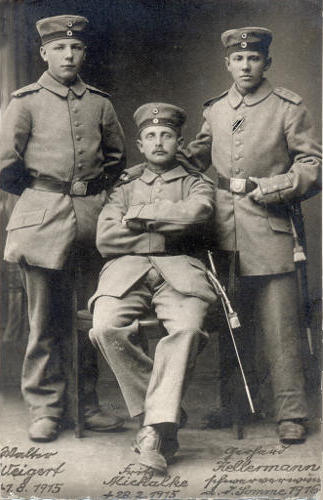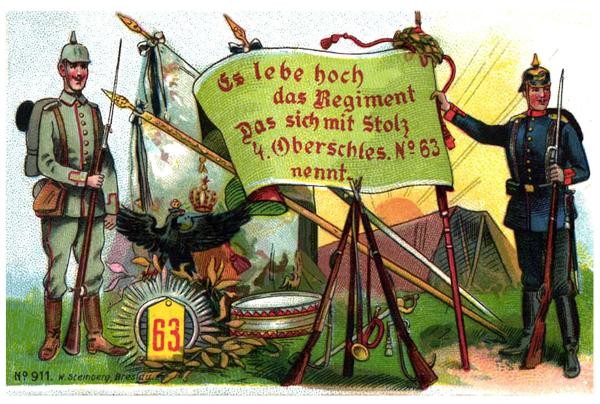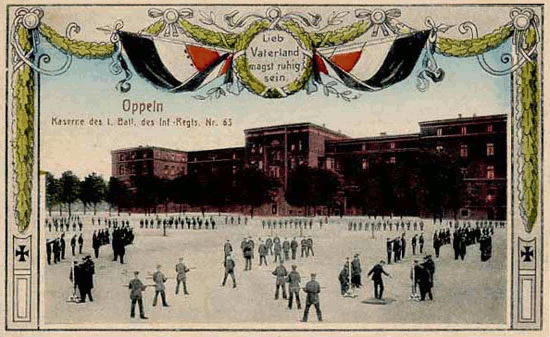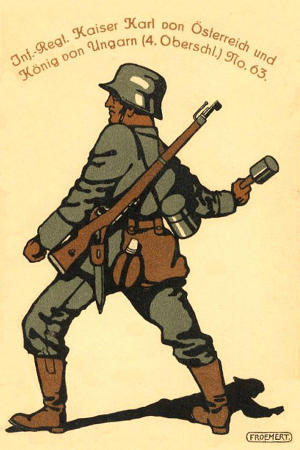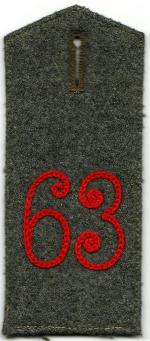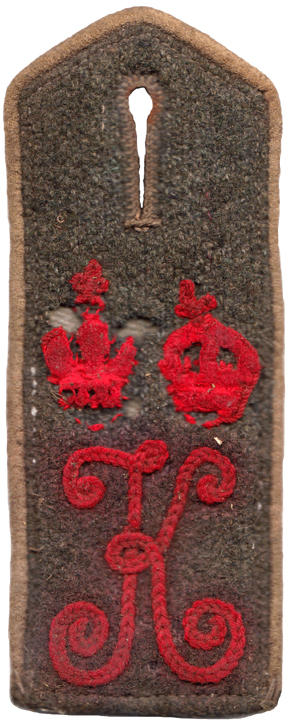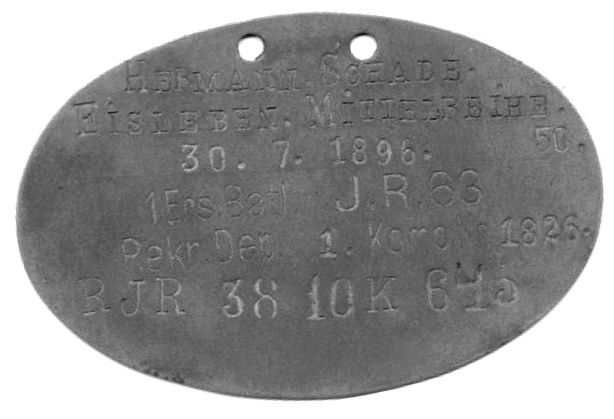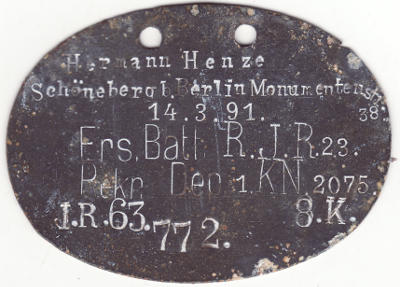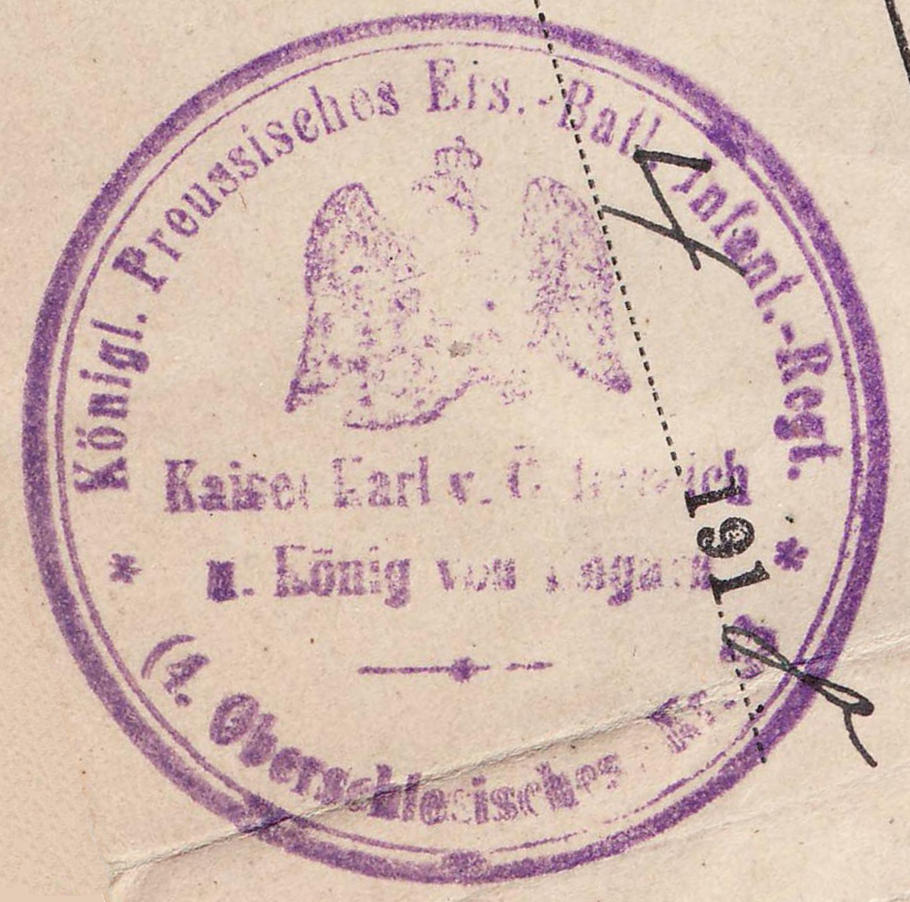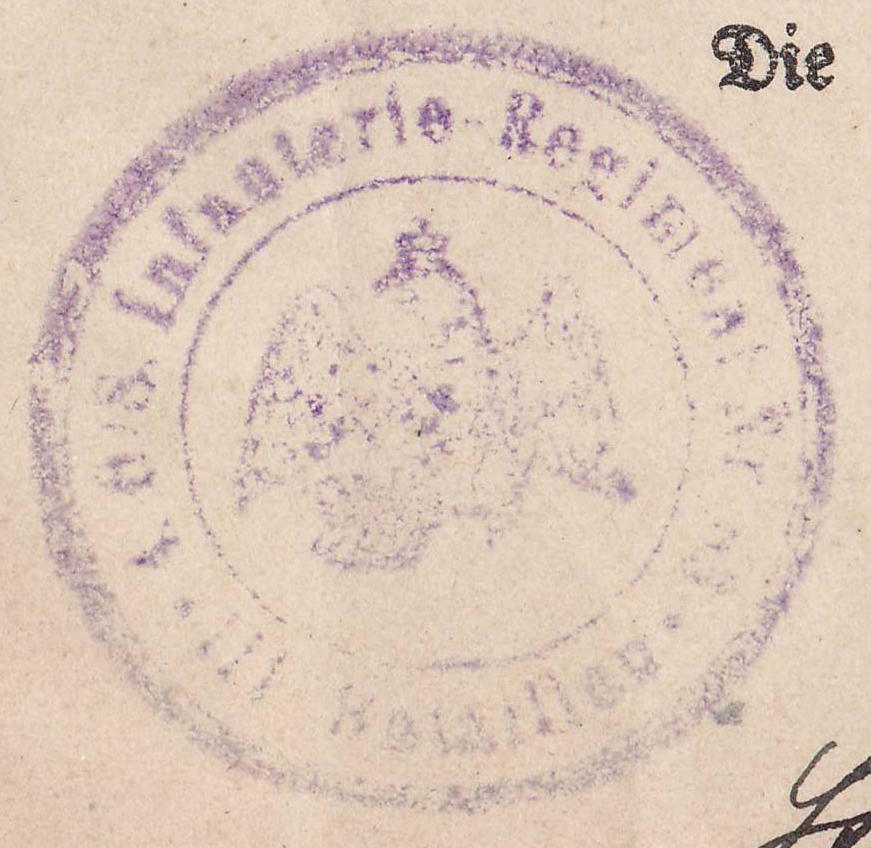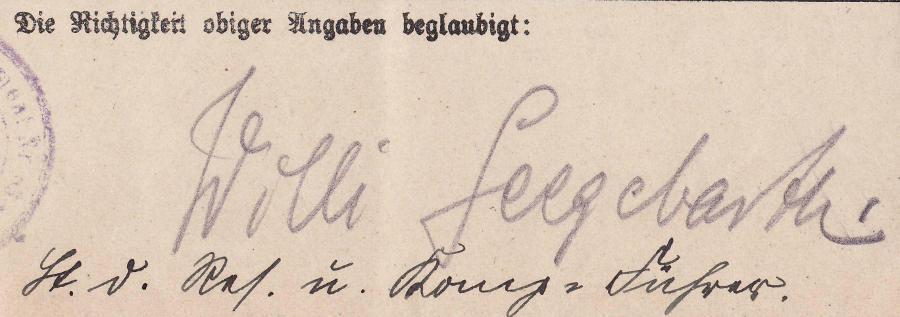Main Menu

Original Images
The following images are smattering of IR63 images before and during the war.
-
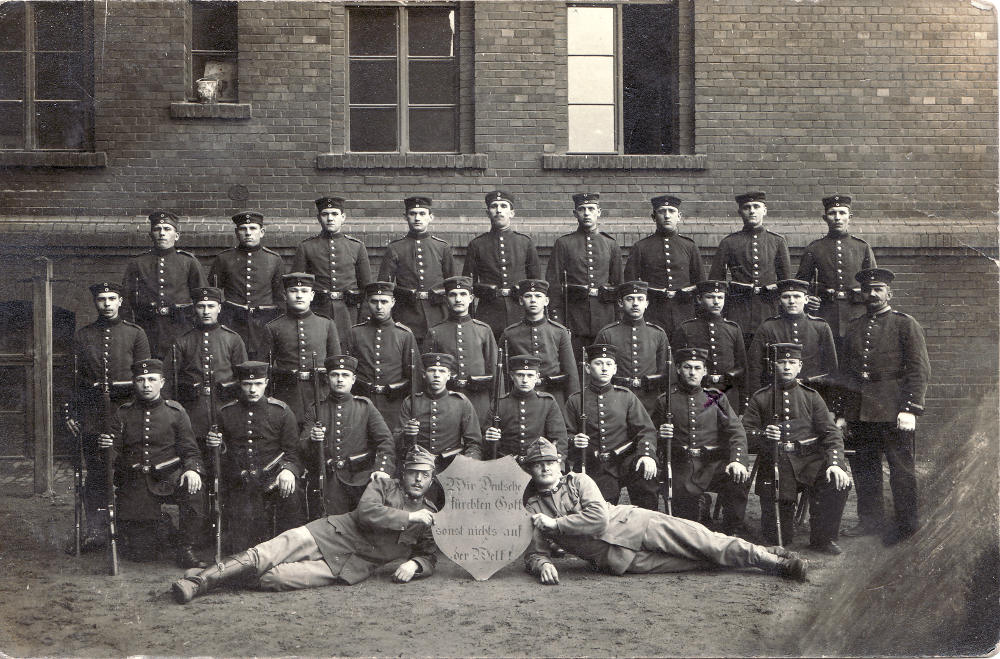
From the collection of Randall Chapman.
-
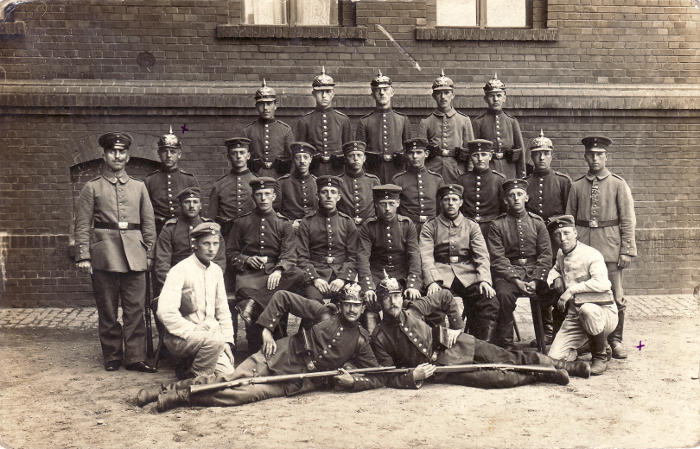
From the collection of Randall Chapman.
-

Found on https://polska-org.pl/
-

Found on https://polska-org.pl/
-

Found on https://polska-org.pl/
-

Found on https://polska-org.pl/
-

Found on https://polska-org.pl/
-

Found on https://polska-org.pl/
-
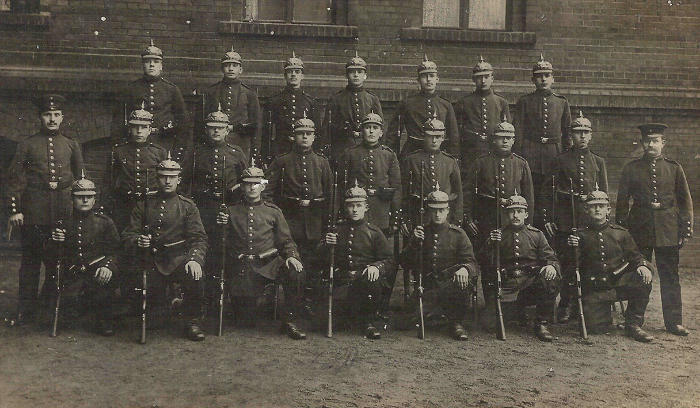
Found on https://polska-org.pl/
-
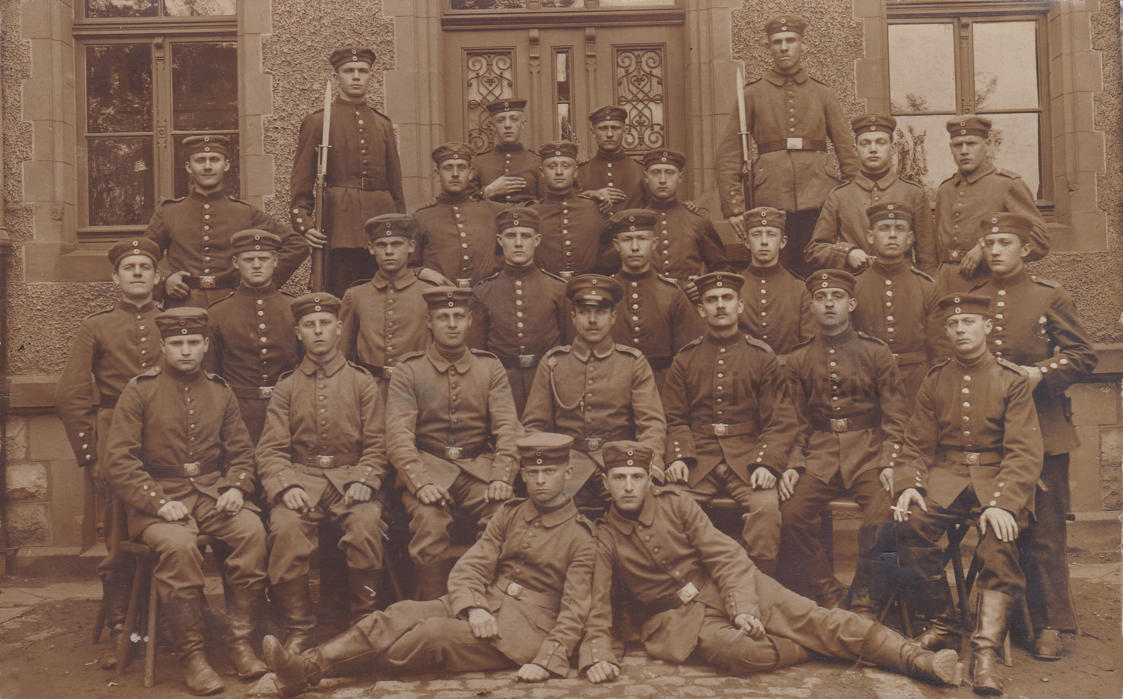
From the collection of JW K on flickr https://www.flickr.com/photos/124774881@N03/
-

Found on https://polska-org.pl/
-

Found on https://polska-org.pl/
-
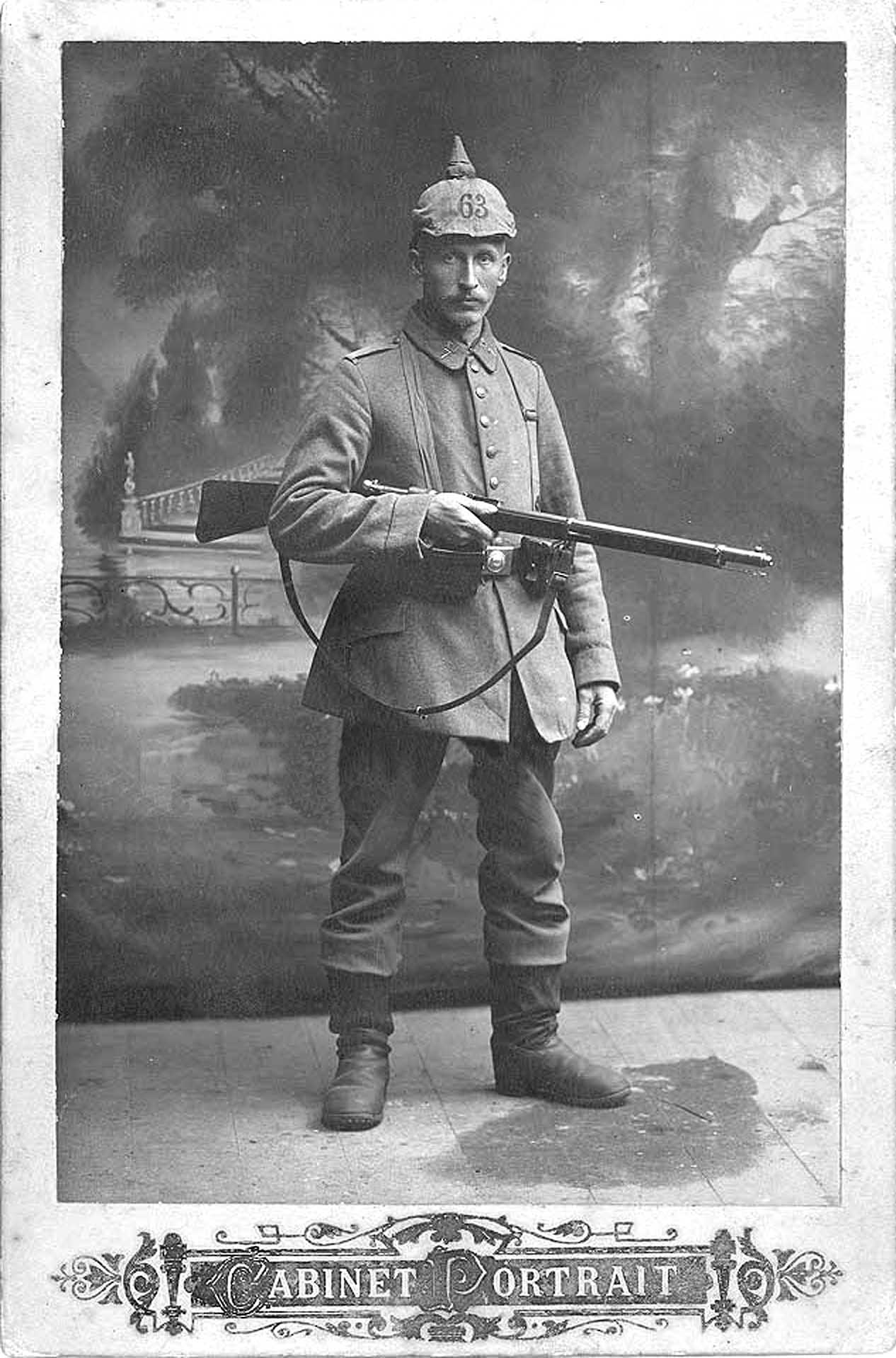
Unknown studio portrait
Original Members of IR63
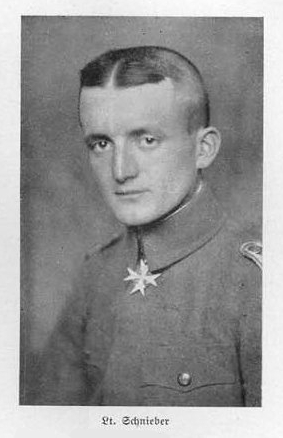
At left is a picture is of Lt. Walther Schnieber, he received the Pour Le Mérite for his role in the capture of Mt. Matajur during the 12th Battle of the Isonzo, or the Battle of Caporetto.
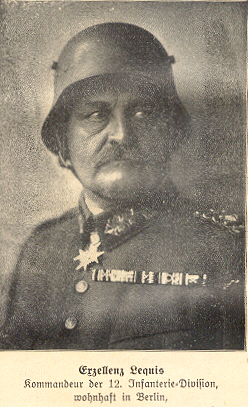
At right is a picture of General Erzellenz Lequis, commander of
the 12th Division throughout the war.
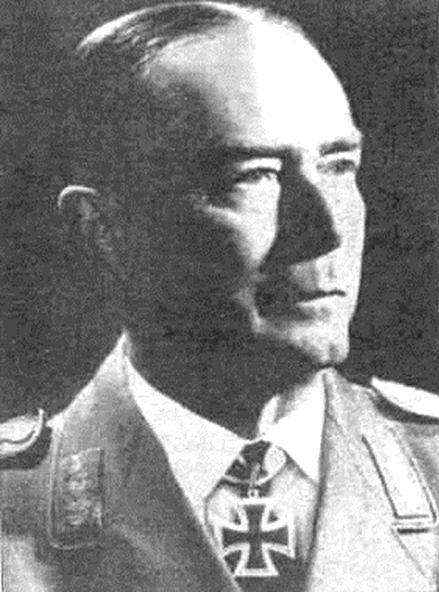
Gehard Matzky began his military career in the Imperial German Army and
served in Infanterie-regiment Nr. 63 throughout the Great War. He went
on to serve in WWII and the Bundeswehr. Click on his picture at left
to see his biography.
Original Commemorative Postcards
Artifacts
Schulterklappen (Shoulder Boards)
The following Schulterklappen are from the collection of Randall Chapman.
This is a photo of a Schulterklappen from the pre-1910 blue uniforms of the Imperial German Army. This particular example has the "63" formed with a woven chord that is sewn to the yellow wool backing.
This is a photo of a non-piped M.1915 Schulterklappen with the "63" chain-stitched to the wool. This board was most likely meant for a Mantel.
This shoulder board is an example of the cyphered Schulterklappen awarded to IR63 after a successful collaboration with Austrian army during 12th Battle of the Isonzo, or Battle of Caporetto. Kaiser Karl of the Austro-Hungarian empire was named honorary head of the regiment and a version of his family's royal family's cypher appears as red felt appliqués with a "K" representing Kaiser Karl chain-stitched onto wool beneath.
Erkennungsmarke (ID Disk)
The following tags are from the collection of Randall Chapman.
Pickelhaube
The following images are of a M.1915 Pickelhaube, a leather bodied helmet with grey-painted tin fittings.
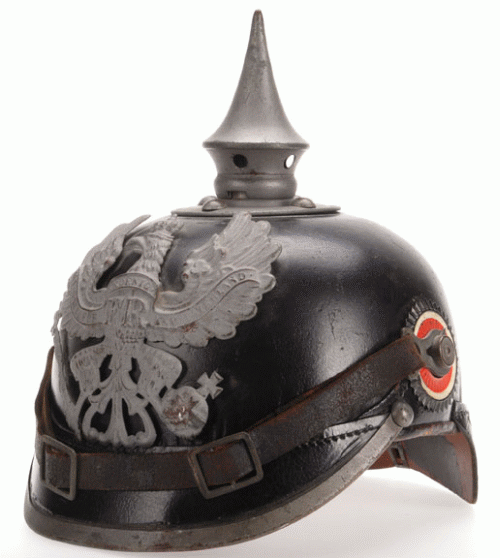
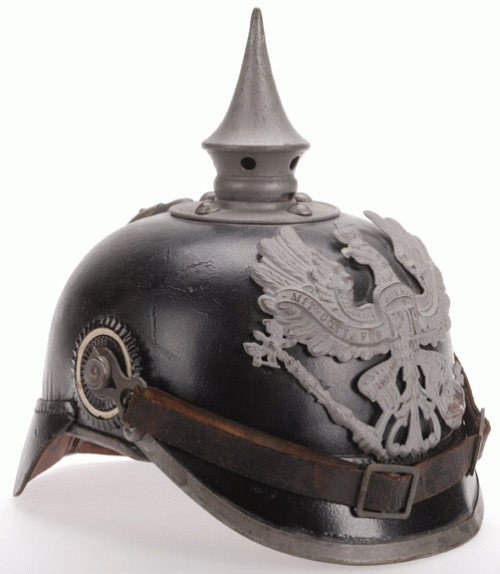
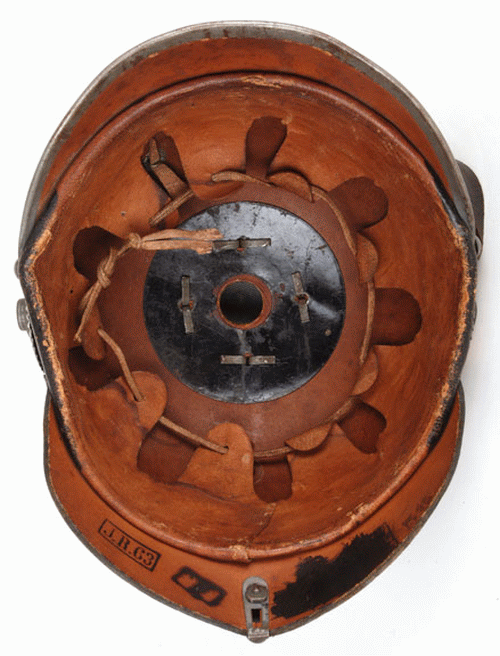

Pickelhaube Helmüberzuge (Spiked Helmet Cover)
The following images are of a M.1915 Model Pickelhaube Helmüberzuge, a canvas cover with green felt numbers helmet and holes in the sides for the chinstrap to slip through and a hole in the top rear where the helmet vent would be.
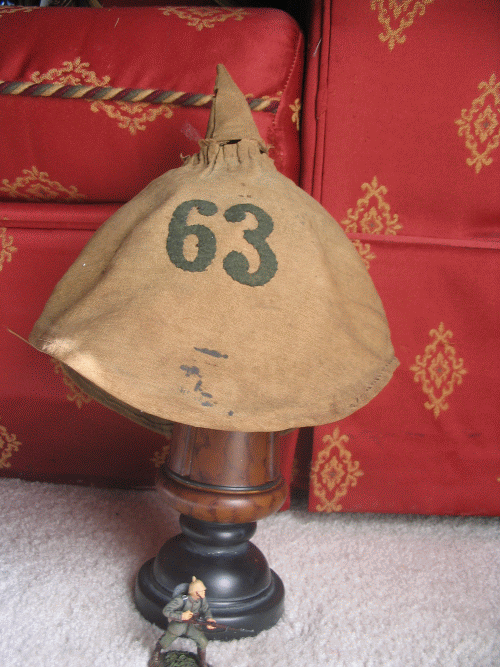
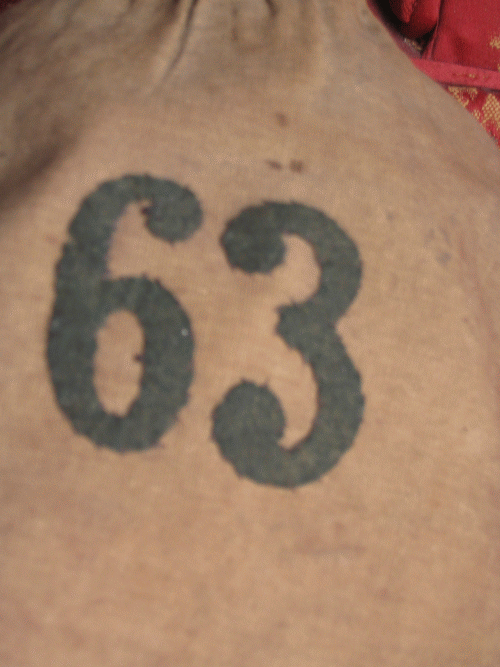

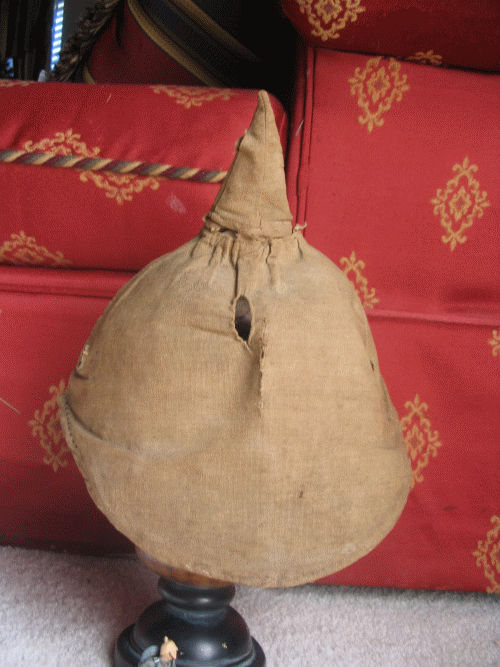
Seitengewehr
The photos below are from the collection represented on http://worldbayonets.com.
The following images are of a M.1898 Seitengewehr, the first pattern bayonet for the M.1898 Mauser rifle.
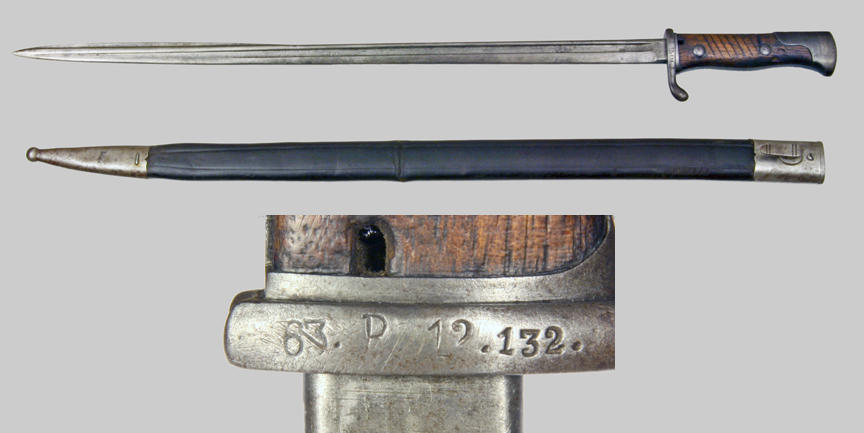
Patronentasche
The following images are of an original M.1909 Patronentasche bearing an issue stamp to IR63. This example has the maker mark "A. Kabierschke 1915".
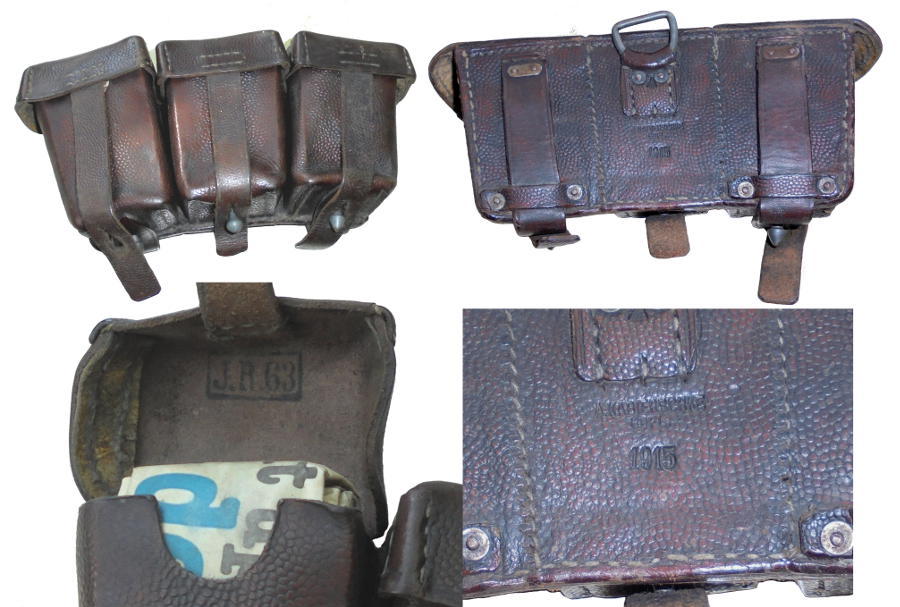
Waffenrock
The following images are of an original Preußen Mannschaften (Other Ranks) Dunkelblau Waffenrock. These were in use from 1860 to 1914. While the Feldgrau Waffenrock was introduced in 1910, the Dunkelblau Waffenrock continued to be used for formal parrade and walking out dress. This example is believed to be of private purchse.
IR63's Home Base Kaserne
Contemporary Images
-
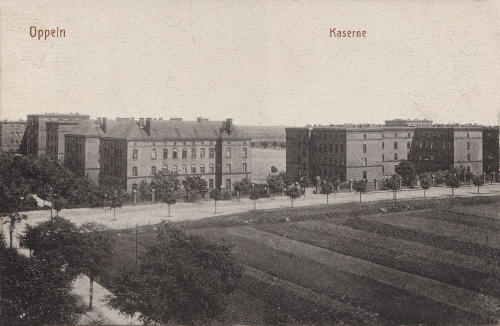
From the collection of Randall Chapman.
-
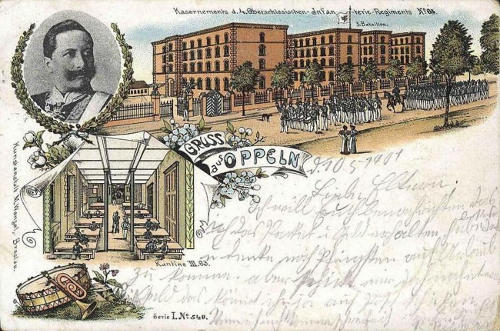
Photo courtesy of http://opole.fotopolska.eu.
-
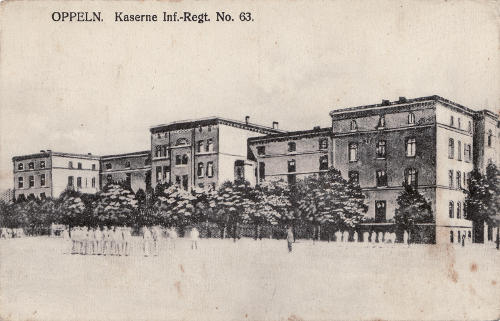
From the collection of Randall Chapman.
-
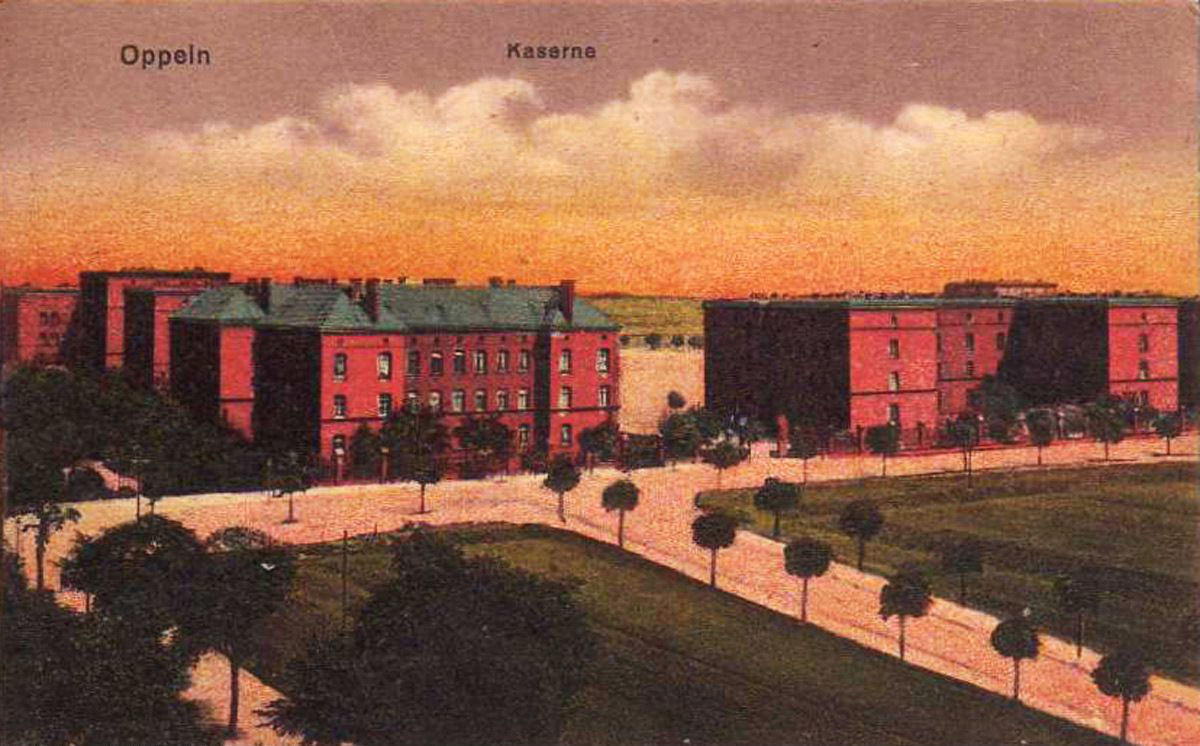
From the collection of Randall Chapman.
-
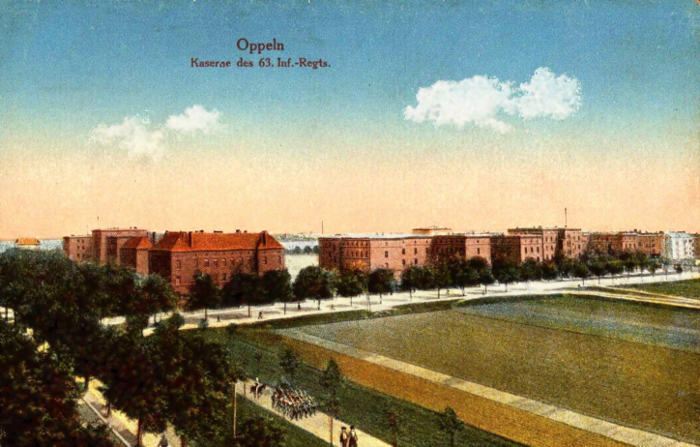
From the collection of Randall Chapman.
-

Found on https://polska-org.pl/
-

Found on https://polska-org.pl/
-

Found on https://polska-org.pl/
-

Found on https://polska-org.pl/
-

Found on https://polska-org.pl/
-
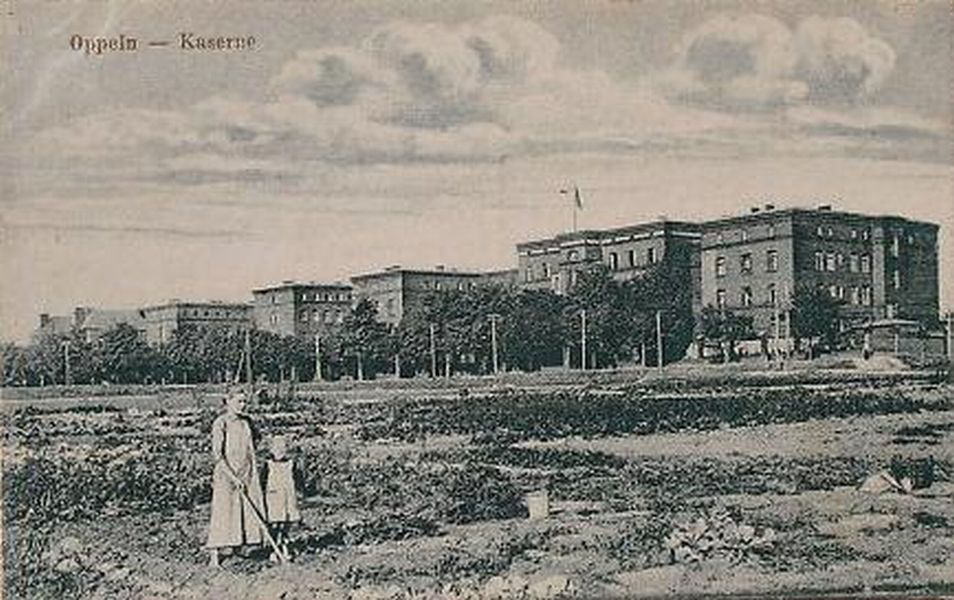
Found on https://polska-org.pl/
-

Found on https://polska-org.pl/
-

Found on https://polska-org.pl/
-
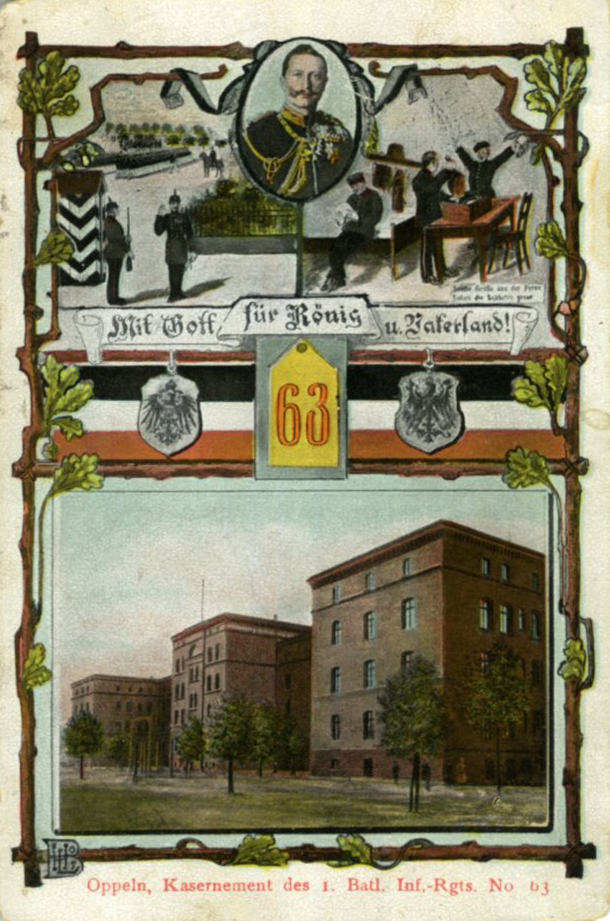
Found on https://polska-org.pl/
-
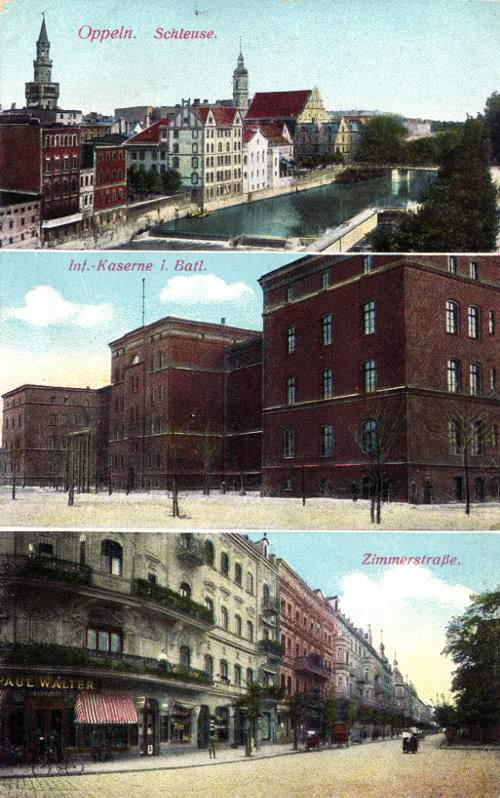
From the collection of
Randall Chapman.
-

Found on https://polska-org.pl/
-
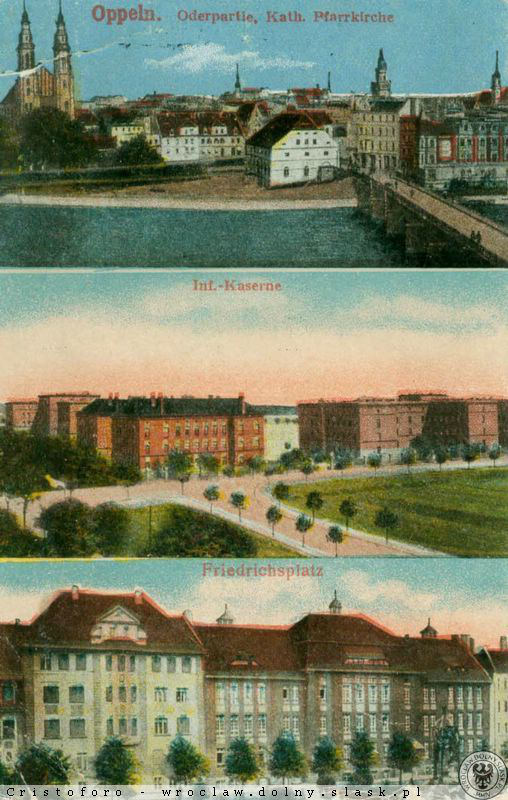
Found on https://polska-org.pl/
-
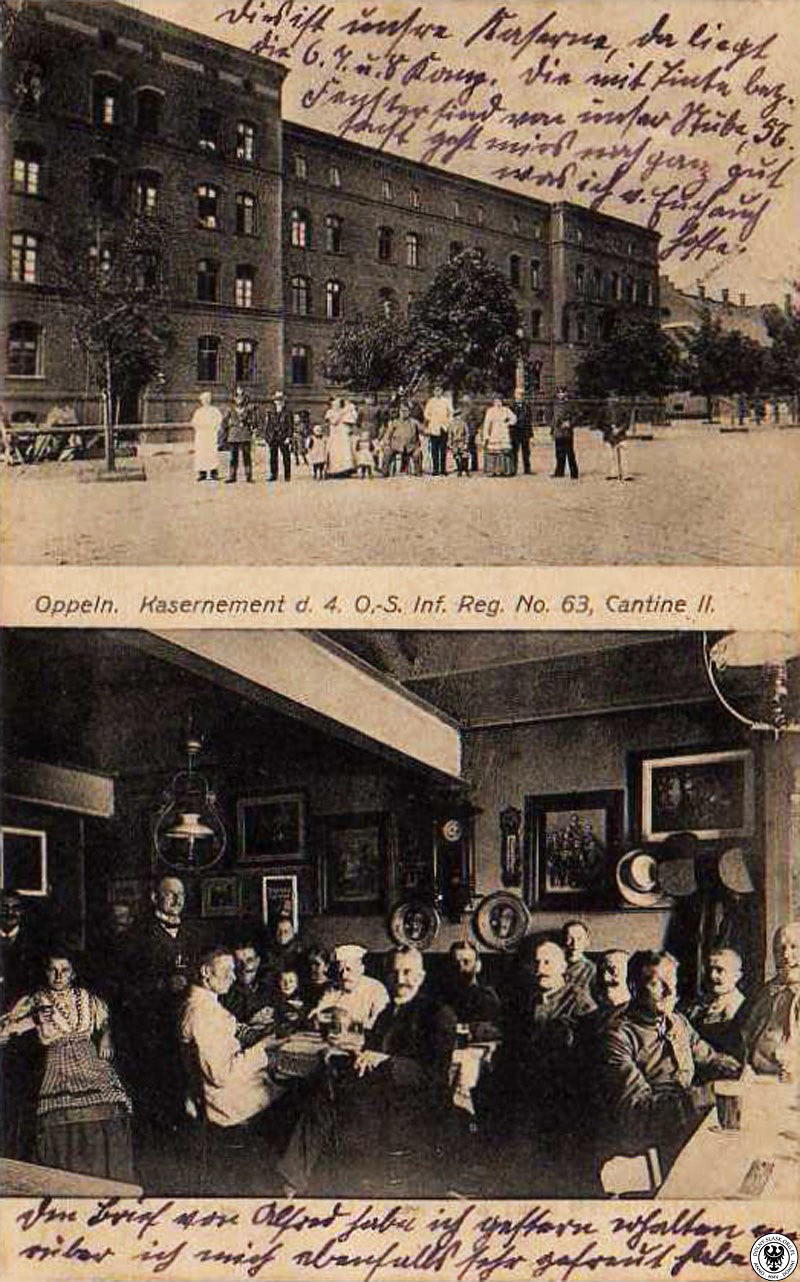
Found on https://polska-org.pl/
The Kaserne Today
This is a Google map of Opole, Poland (formally Oppeln in the Kaiserreich), the red star indicates the location of the former barracks (Kaserne) of IR63 - the buildings do still exist today and serve as city government buildings.
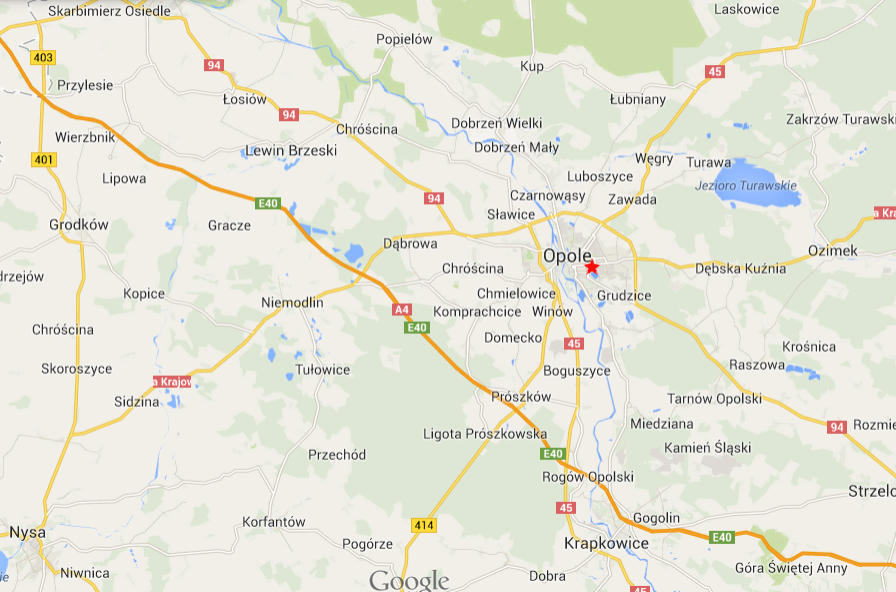
This is a Google map excerpt close in to the Kaserne, the remaining buildings have outlined in red.
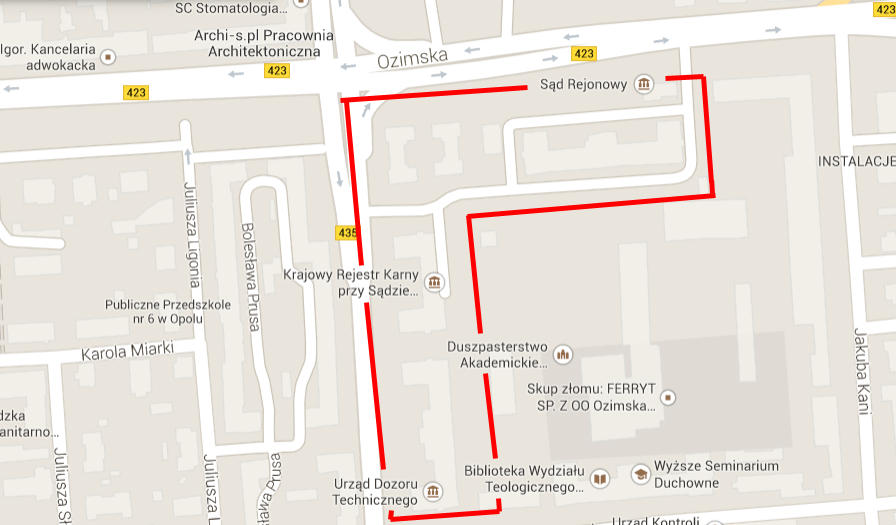
This is a Google Map satellite image of the same area above with remaining Kaserne buildings outlined in red.
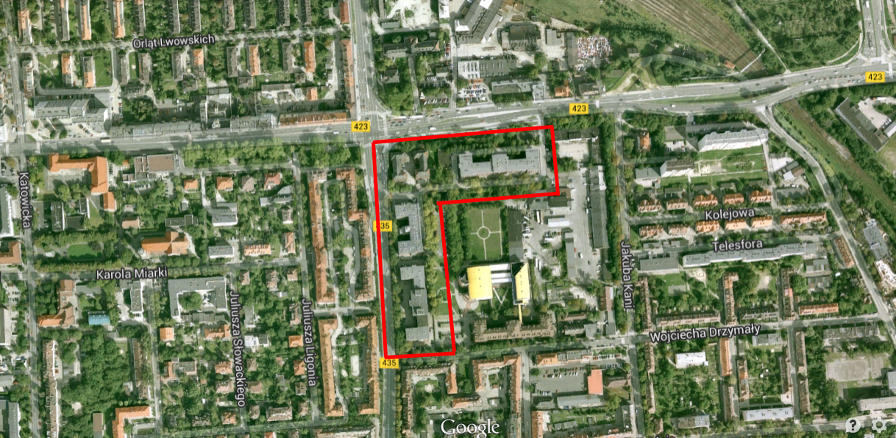
The IR63 Monument
In 1924, a monument to the fallen of IR63 was erected across the street from the Kaserne. The following images have been taken from the collection of http://dolny-slask.org.pl/776798,foto.html?idEntity=519533.
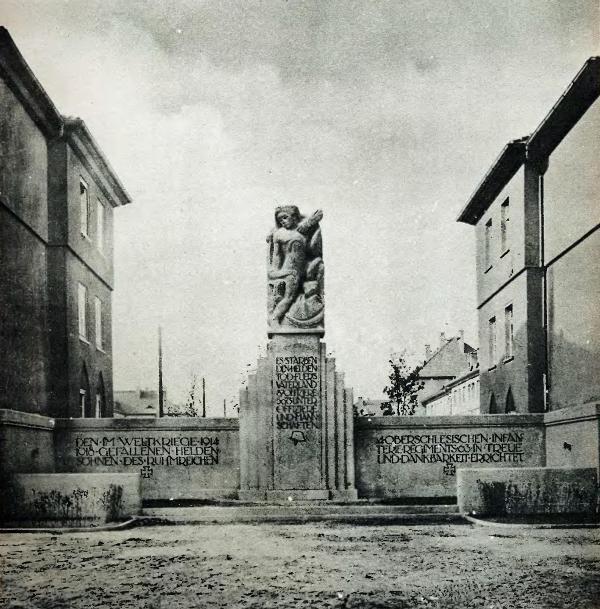
The monument as it appeared when erected.
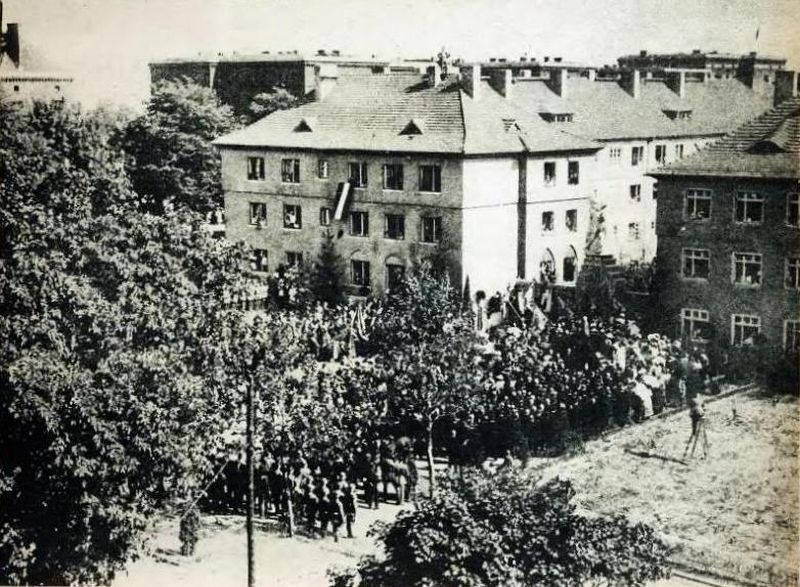
A photo taken during the 1924 dedication ceremony.

Detail of centerpiece.

A close-up of the sculpture during its creation.

A contemporary colorized postcard of the monument.
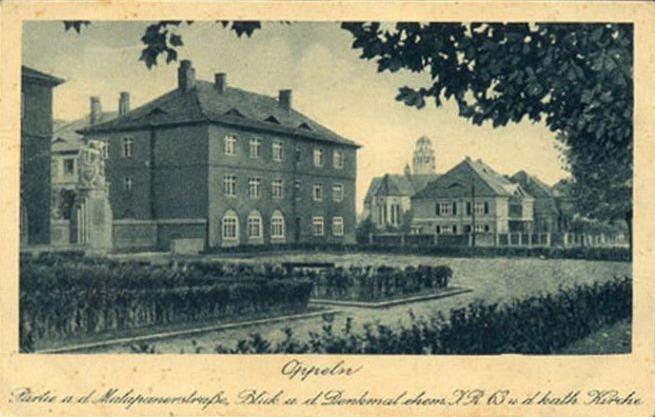
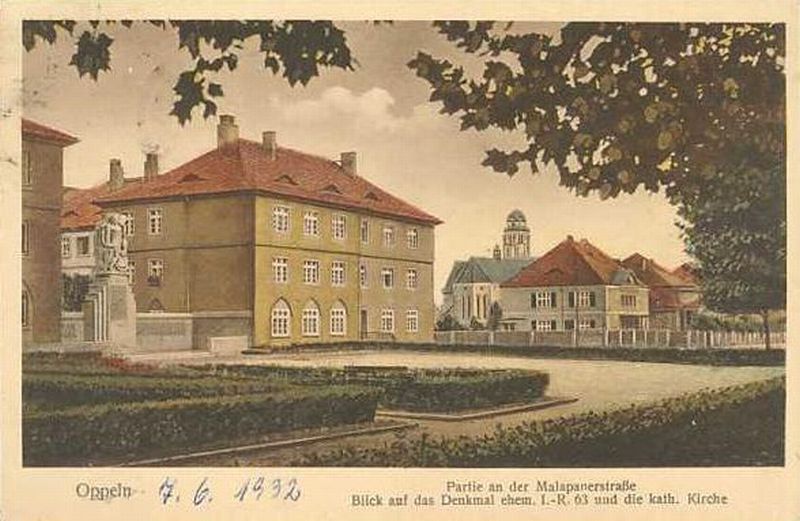

This image was taken during a ceremony commemorating the
veterans of the Regiment from 1930.

This image was taken during a ceremony commemorating the
veterans of the Regiment from 1935.
The Monument today

This image is an aerial shot from Google Maps with the remaining Kaserne
buildings outlined in red on the right, and the monument's location circled
in red to the left.
The following images are of the monument today. Sadly, the dedications have been removed.
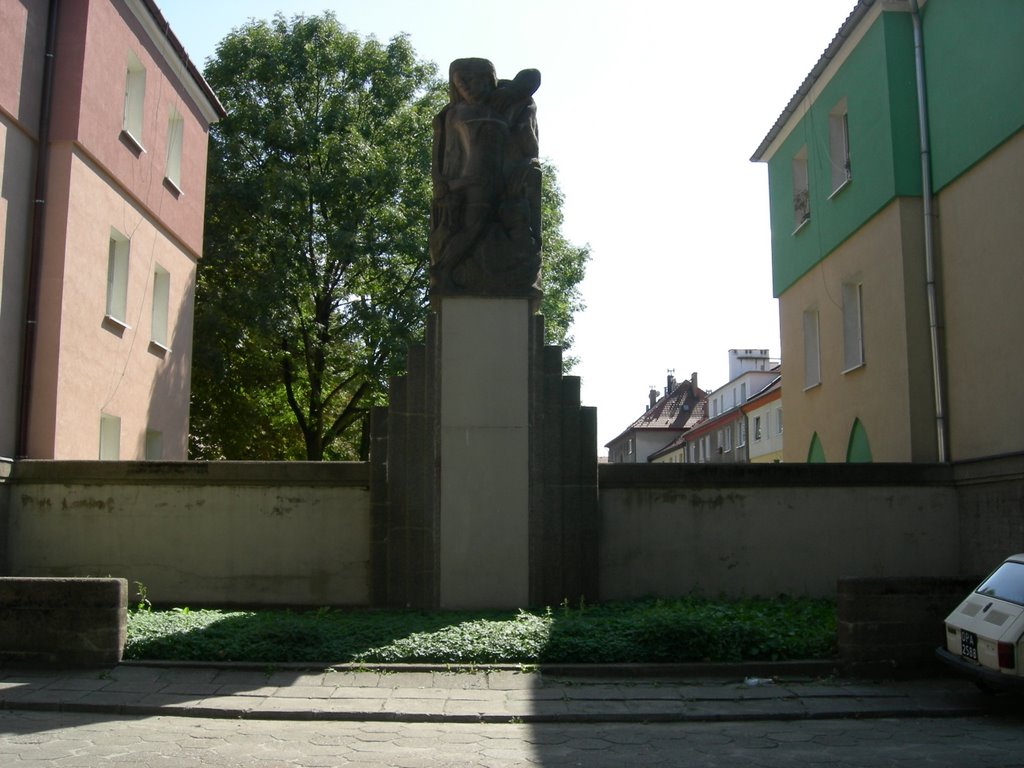
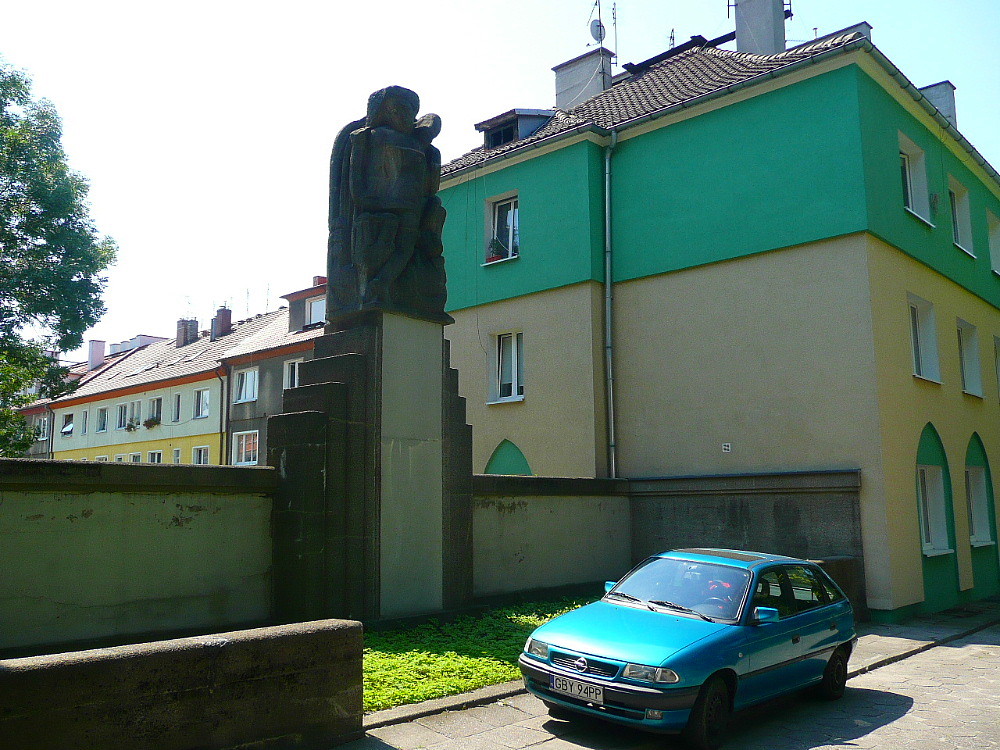
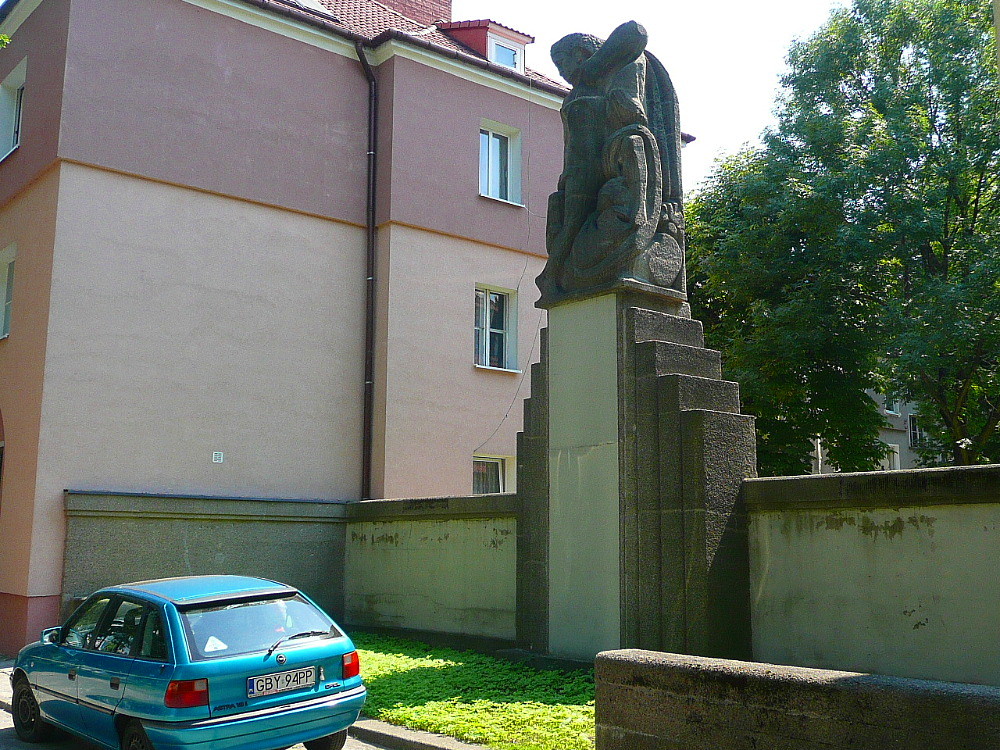
Documents
The following scan is a strip of paper, believed to have been cut from a Stammrolle — personnel files of the regiment.

If you have images, or artifacts connected to IR63, we would be most grateful if you would share — please contact me at FritzHoffmann@IR63.org and let me know what you have, I would like to share them here and would be happy to post credit to you for sharing. Danke!
